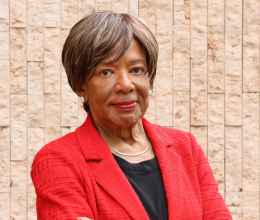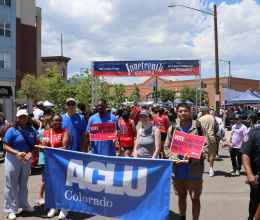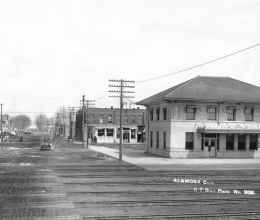In legal papers filed today, the ACLU of Colorado asked the Colorado Supreme Court to review Boulder’s controversial “no camping” ordinance, which targets homeless residents who are forced to sleep outside at night.
“When homeless persons are turned away from shelters, they have no choice but to sleep outdoors,” said Mark Silverstein, ACLU Legal Director. “Boulder’s ordinance unfairly and unconstitutionally turns them into criminals for this involuntary act. We are asking the court to overturn our client’s conviction.”
Boulder’s no-camping ordinance prohibits sleeping outside with "shelter," which Boulder defines to include any protection from the elements other than clothing. Under the ordinance, merely sleeping outside at night is not "camping," but sleeping while using a blanket or sleeping bag is a crime.
The ACLU’s client, David Madison, a person who is homeless, was charged with violating the camping ordinance in November, 2009, when he slept outside in a sleeping bag during a night when the temperature dropped to 11 degrees. Mr. Madison had sought refuge at the homeless shelter, but there was no space for him. He was found guilty of “camping” in Boulder Municipal Court, based on the court’s ruling that the sleeping bag constituted “shelter” and therefore violated the camping ban.
“Mr. Madison’s case highlights both the absurdity and the cruelty of Boulder’s ordinance,” Silverstein continued. “Because the frost-covered sleeping bag was deemed to be ‘shelter,” the ordinance makes our client a criminal. If our client had just slept in his clothes, he might have gotten frostbite or hypothermia, but he would have been found not guilty.”
On April 20, the Boulder District Court rejected the ACLU’s appeal of Mr. Madison’s conviction, prompting today’s petition for review in the state supreme court. “We have asked the Supreme Court to review this case, not only because of Mr. Madison’s conviction is so obviously unjust,” said Mr. Silverstein, “but also because it is still an open question in Colorado whether or not cities such as Boulder, in what appears to be nothing more than an effort to rid the city of its homeless population, are permitted to criminalize activities that the homeless have no choice but to do, such as sleeping outdoors. We hope that the Supreme Court will say with clarity that homelessness is not a crime.”
If the Supreme Court accepts the case, the ACLU, through cooperating attorneys Mark Walta and David Harrison, will argue that persons who are forced to sleep outdoors have a right to protect themselves from the elements when doing so causes no one any harm. Further, Mr. Walta explains: “Mr. Madison’s conviction constitutes cruel and unusual punishment because it criminalizes one of the essential attributes of homelessness – that the basic activities of daily life, including sleeping, often must be conducted outdoors. The ordinance puts individuals who are homeless in an impossible position – they can either break the law by harmlessly satisfying their need for warmth and shelter against the elements, or they can risk their own health and safety by forsaking these basic needs in order to comply with the letter of the law. This is not justice.”
In the past five years, Boulder has energetically enforced the “no camping” ordinance against the city’s homeless population, prosecuting almost 2000 cases. Yet, Boulder’s primary homeless shelter accommodates only 160 persons, less than a quarter of the city’s estimated homeless population. In 2009, advocates for the homeless, including the Boulder County Chapter of the ACLU, urged the City Council to stop enforcing the ordinance. In January 2010, the council instructed its staff to draft an ordinance declaring a moratorium. A month later the council reversed course and continued enforcing the controversial camping ban.


